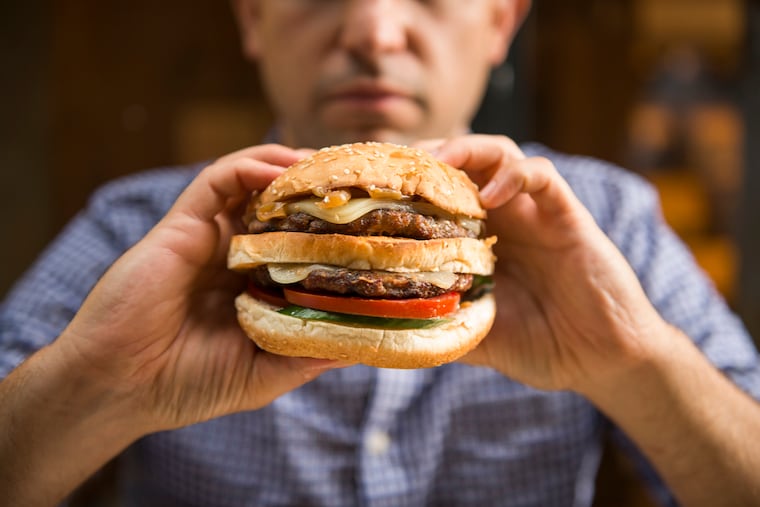Fast food is the worst of the many environmental health hazards we face
Fast food is killing us, more so than any toxins in the environment. Even the number of fast food restaurants in an area can be toxic to your health.

Trying to stay healthy is complicated. After a recent report linked the use of everyday products such as plastic wrap, plastic water bottles, and food additives to everything from obesity and diabetes to hormonal abnormalities in children, I decided to review the studies published in the last couple of years in the medical literature to see exactly what science says regarding the effect of the environment on our heart and bodies. Here is what I found:
Fast food is killing us, more so than any toxins in the environment. Even the number of fast-food restaurants in an area can be toxic to your health. A study in May looked at the number of such institutions and the risk of heart disease, stroke, and diabetes. The maximal impact of each restaurant is small, but opening up 10 new places in every county in America would add an extra 748 cardiac deaths, 567 stroke deaths, and 390 new cases of diabetes in the next 10 years.
Other kinds of foods are killing us, too. Nitrates and nitrites — used as preservatives in processed meats, fish, and cheese — have been associated with cancer. There is little doubt that processed meat — meat that has been smoked, cured, or had salt or chemical preservatives added — can increase the risk of colon cancer. This includes bacon, salami, corned beef, pepperoni, pastrami, hot dogs, and all types of ham. In one study, eating as little as two strips of bacon a day increased the risk of colon cancer by 18 percent.
Air pollution and too much traffic noise can increase your risk of heart disease. In a study from Norway and England of more than 350,000 people, there was an association between long-term exposure to air pollution in big cities, as well as higher city road traffic, and an increased chance of developing heart disease.
Plastic containers and bottles that hold our food and water may be slowly poisoning us. In the study that first got my attention, the American Academy of Pediatrics called out to parents to rethink using plastic products for their kids. Bisphenols — chemicals used to coat metal food cans and plastic containers to prevent corrosion — are absorbed by the food that they protect, can decrease fertility by mimicking estrogen in the body, cause weight gain, and interfere with neurologic development in children. Phthalates, used to make plastic storage wrap and containers, also are absorbed into food. They can disrupt the endocrine system, cause weight gain, and harm the heart. Adults should be concerned about this, especially for growing children.
Plastic water bottles may be slowly leaking chemicals into the expensive water they hold. They and other plastic containers hurt the environment, and may break down chemically if reused or get too hot — as in the microwave or dishwasher. Consider using alternatives, such as glass or stainless steel. Another helpful hint: Look at the recycling codes on the bottom of plastics. Try to avoid using plastics with the code 3 (phthalates), 6 (styrene), and 7 (bisphenols) on the bottom. If plastics are labeled bio-based or greenware, they are usually made from corn and likely do not contain bisphenols.
Artificial food coloring, used to make our food look prettier, may exacerbate attention deficit disorder and hyperactivity. The use of the nine artificial food colors approved by the U.S. Food and Drug Administration has increased fivefold from 1950 until 2012. Research suggests some of these may be carcinogenic.
Finally, in a study in the British journal Lancet, funded by the Gates Foundation, researchers looked at what caused people to die prematurely in England. The leading cause of death, as in most countries, was from heart disease. Modifiable risk factors accounted for almost 40 percent of the deaths, led by an unhealthy diet, smoking cigarettes, and drinking too much alcohol. Exercising, following a good diet, and not smoking or drinking to excess makes a difference.
Being overweight is more toxic to our health than environment toxins, but we should probably try to be more careful in our daily life, limiting our contact with these potential poisons as much as possible.
David Becker, M.D., is a frequent Inquirer contributor and a board-certified cardiologist with Chestnut Hill Temple Cardiology in Flourtown, Pa. He has been in practice for 25 years.